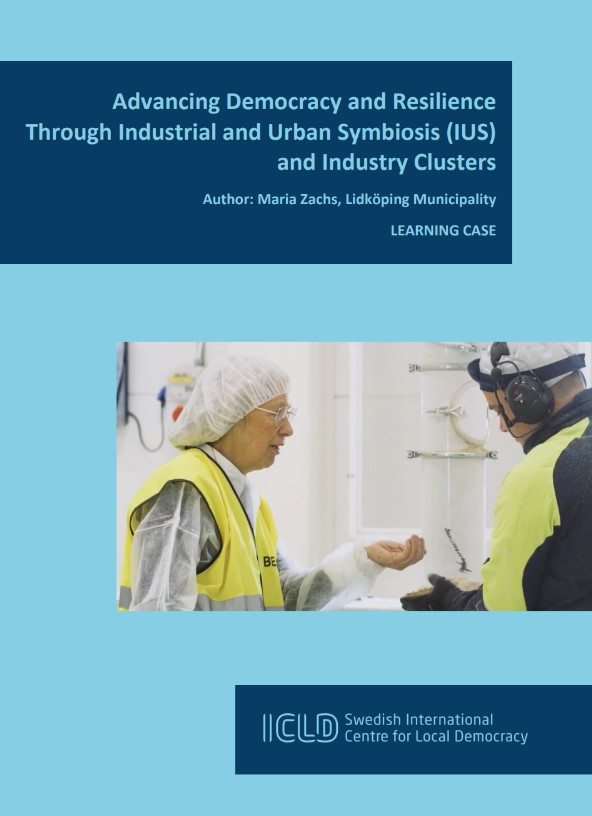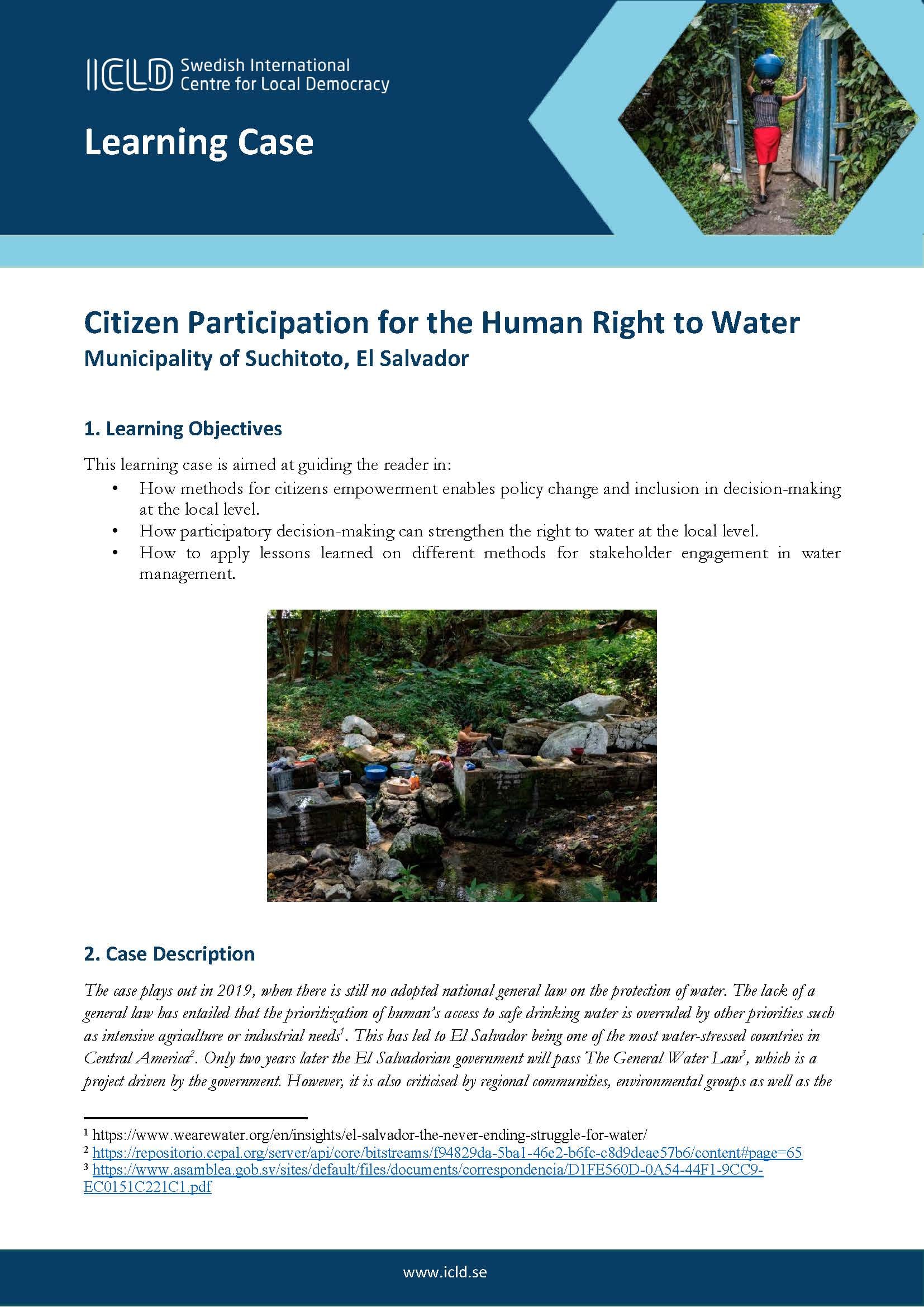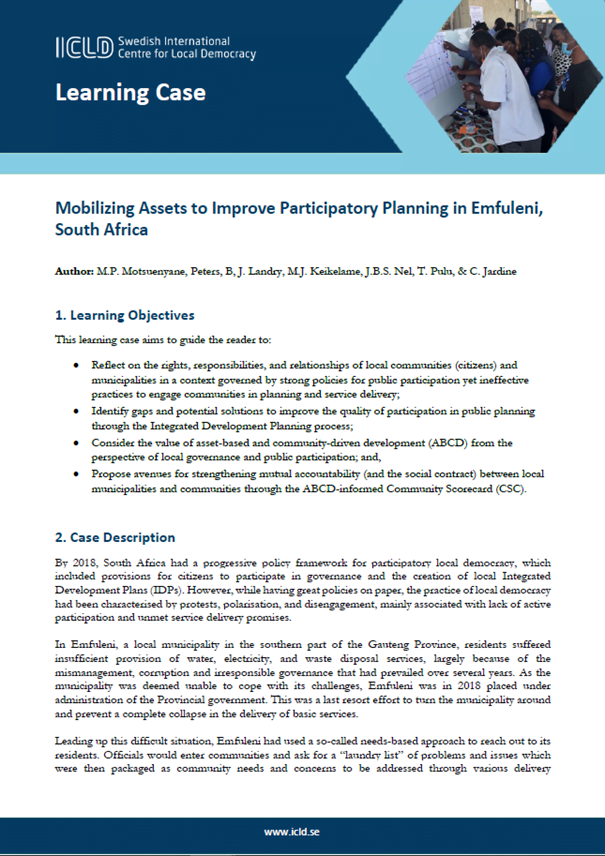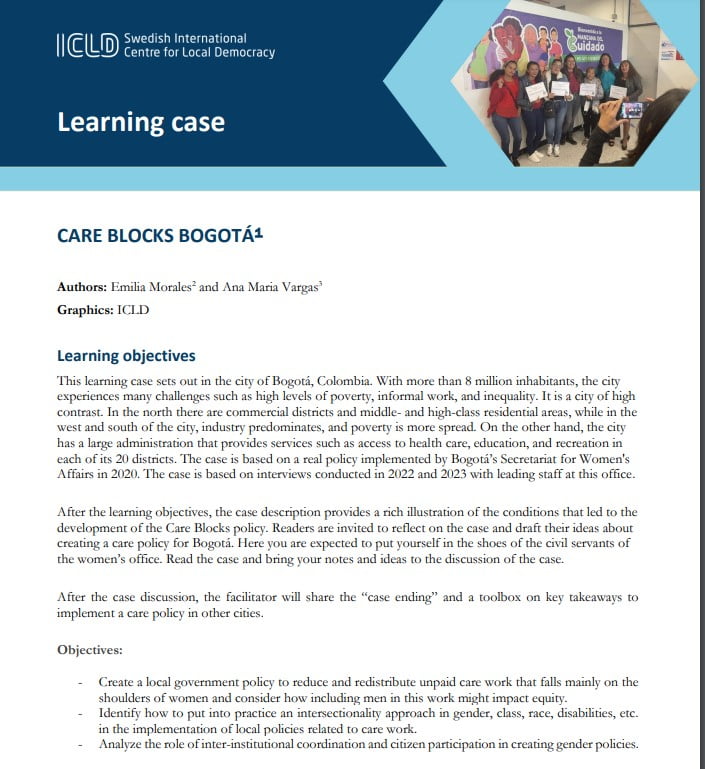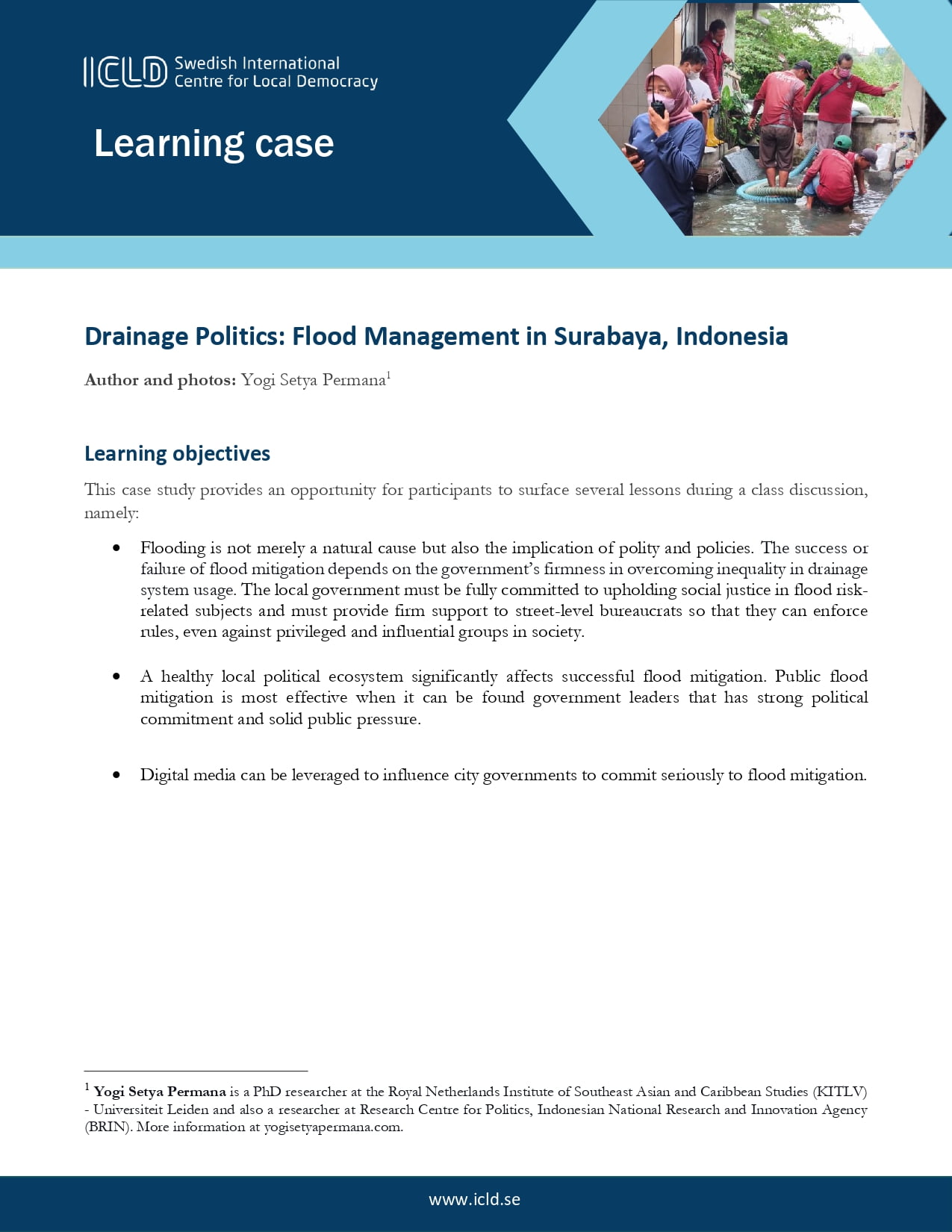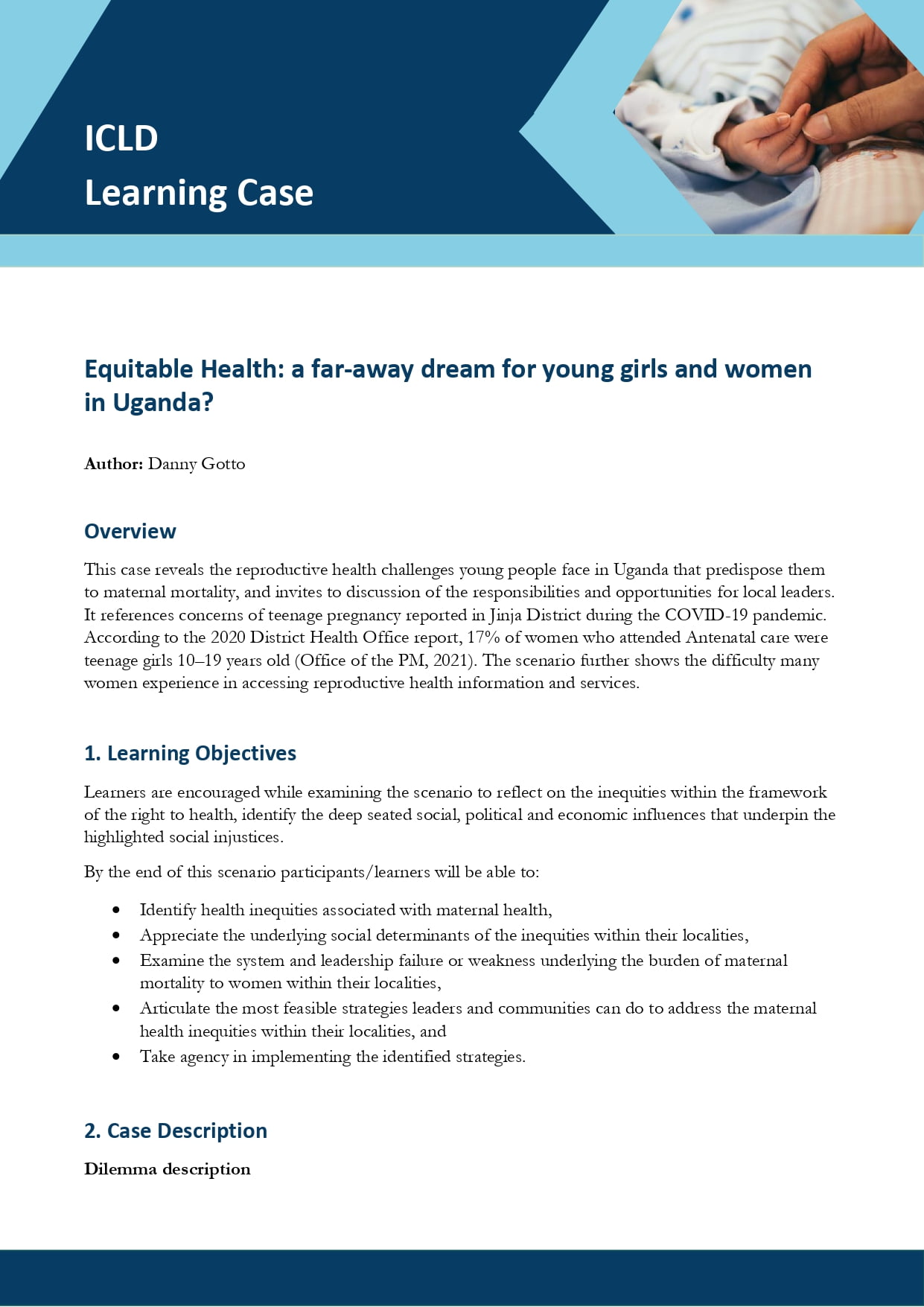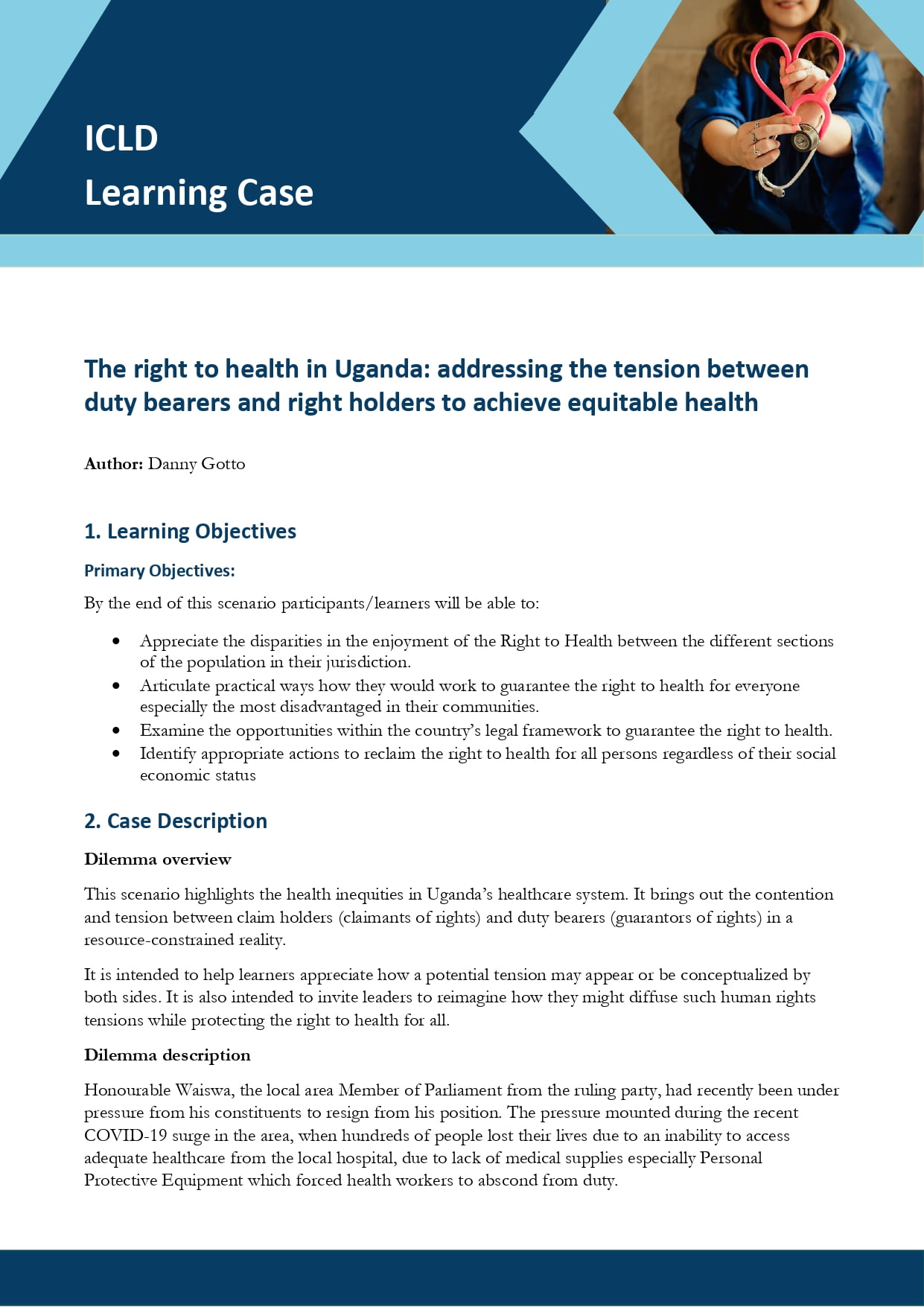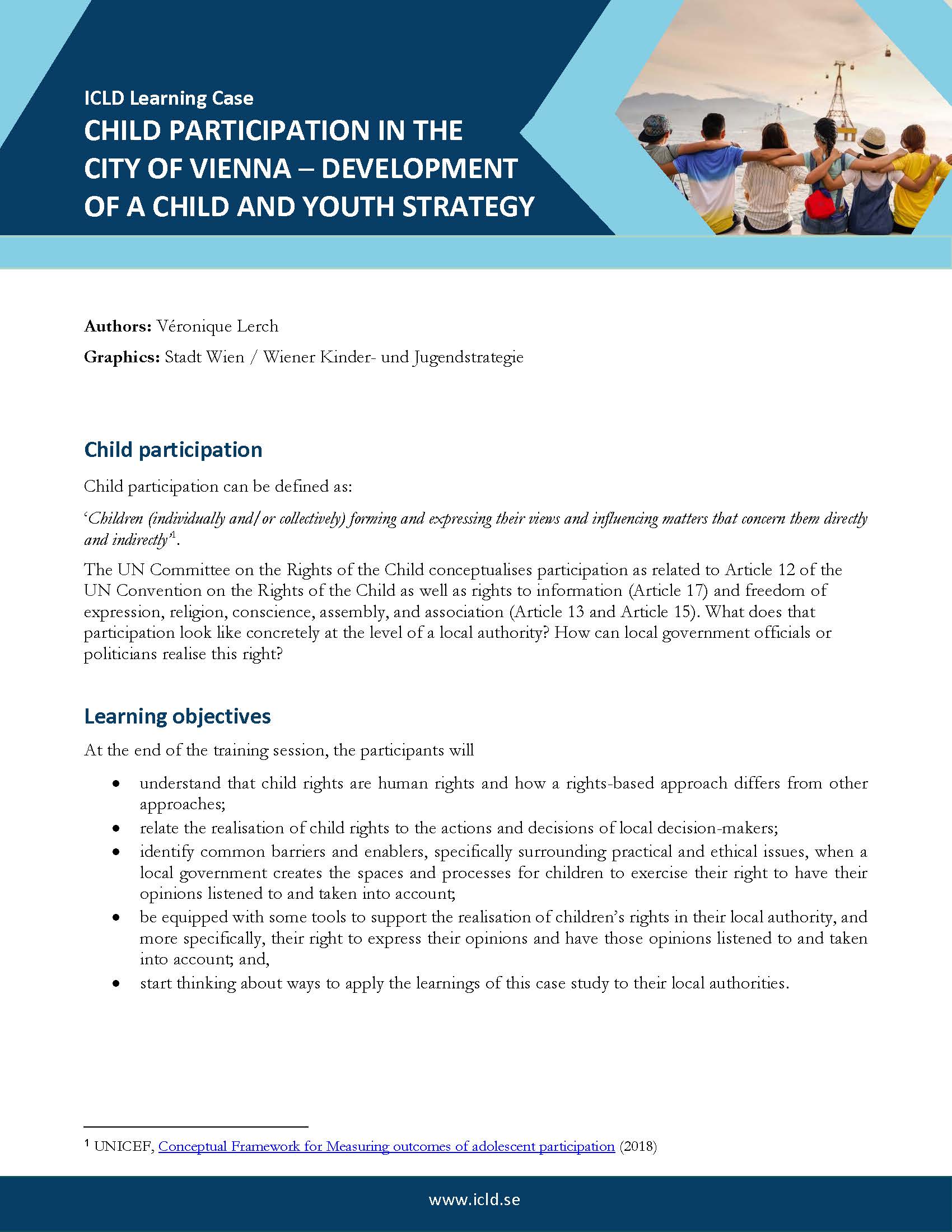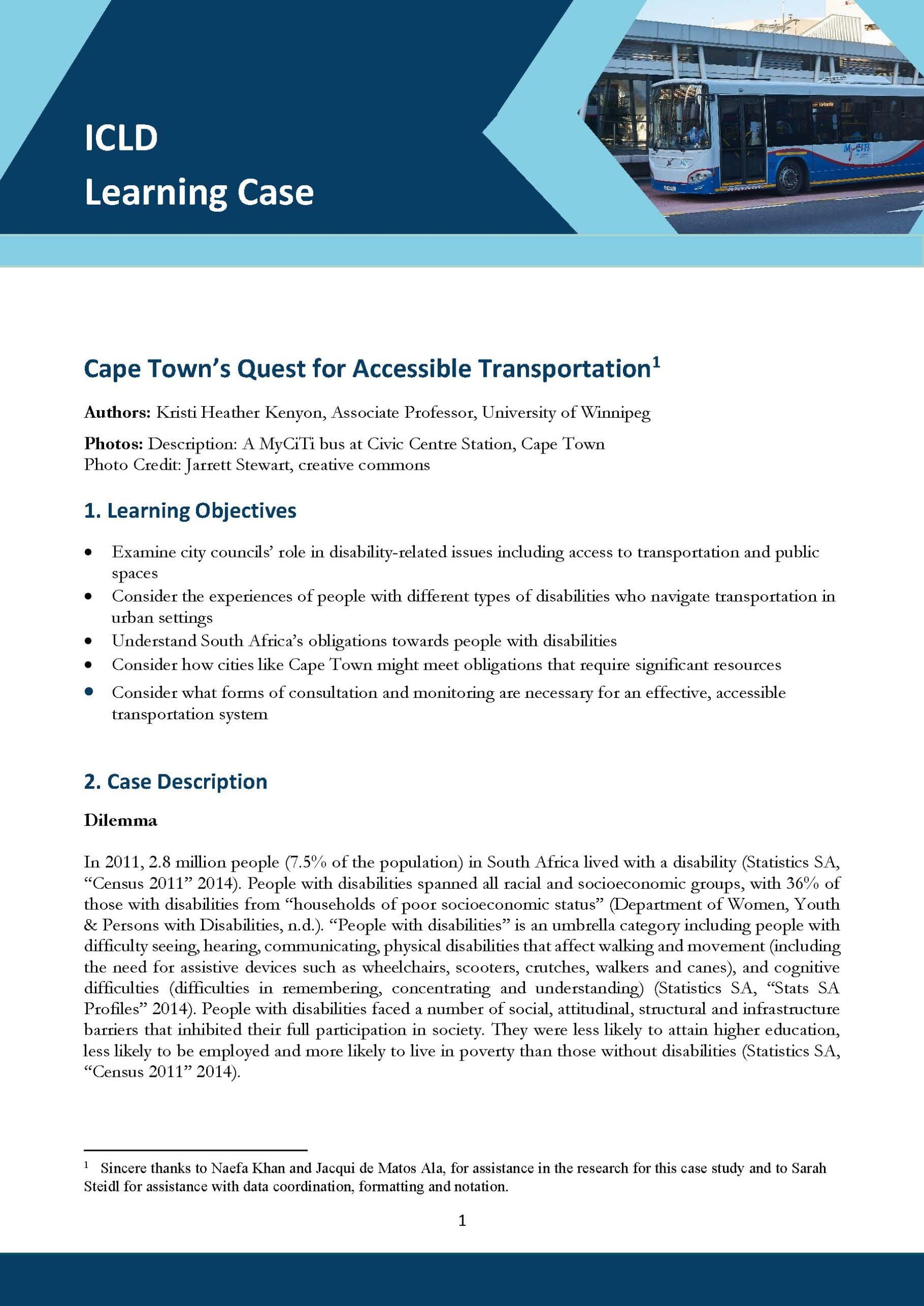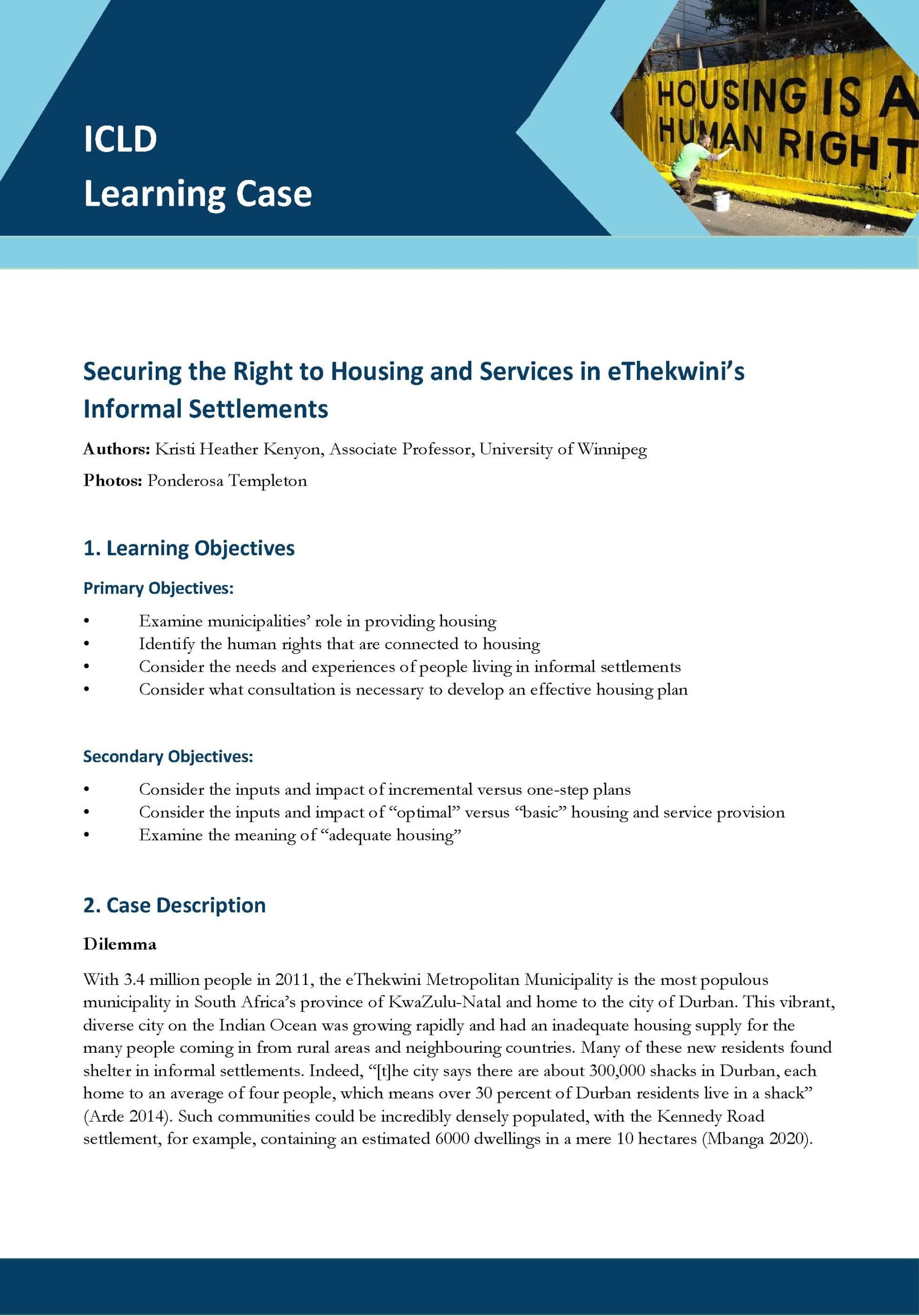Learning Cases
-
Advancing Democracy and Resilience through Industrial and Urban Symbiosis
This learning case offers insights into how local governments can advance climate justice by embedding accountability, transparency, equity, and civic participation. It invites local governments who seek to actively promote circular economy to learn about a holistic approach to public-private partnerships and the “industry cluster” method. It illustrates how strengthening local democracy is, and should…
-
Citizen Participation for the Human Right to Water
This learning case aims to guide the reader to:
-
Mobilising Assets to Improve Participatory Planning in Local Governance in South Africa
This learning case aims to guide the reader to:
-
Care Blocks Bogotà
This learning case sets out in the city of Bogotá, Colombia. Through the personal story of Graciela, the case examines unpaid care work from an intersectional perspective and reflects on how Bogotá’s Secretariat for Women’s Affairs implemented “Care blocks” to in 2020. The material can be read on its own but is intended as basis…
-
Drainage Politics: Reducing Climate Change Vulnerability in Surabaya, Indonesia
This learning case sets out in a city prone to natural disasters, and explores how policy and political commitments can reduce the consequences. After the introduction, readers are invited to reflect on a dilemma of enforcing a mitigation plan that landed public support, but that compromises the political position from which the plan is enforceable.…
-
Equitable Health: a far-away dream for young girls and women in Uganda?
This case reveals the reproductive health challenges young people face in Uganda that predispose them to maternal mortality, and invites to discussion of the responsibilities and opportunities for local leaders. It references concerns of teenage pregnancy reported in Jinja District during the COVID-19 pandemic. According to the 2020 District Health Office report, 17% of women…
-
The right to health in Uganda – addressing the tension between duty bearers and rights holders to acheive equitable health
This scenario highlights the health inequities in Uganda’s healthcare system. It brings out the contention and tension between claim holders (claimants of rights) and duty bearers (guarantors of rights) in a resource-constrained reality. It is intended to help learners appreciate how a potential tension may appear or be conceptualized by both sides. It is also…
-
Child Participation in the City of Vienna
With the UN Convention on the Rights of the Child as starting point, discussants are invited to use Vienna’s commitment to implement a child and youth strategy to reflect on how to build such a strategy that achieves meaningful child and youth participation. The Facilitator Guide introduces helpful concepts and tools: Lundy’s Model of Participation…
-
Cape Town’s Quest for Accessible Transportation
Key concepts: Spatial Inequality, Social Inclusion, Disability Rights As in many countries in the world, people with disabilities in South Africa face a number of social, attitudinal, structural and infrastructure barriers that inhibit their full participation in society. Accessible transportation can be one way to overcome some of these barriers and allow for access to…
-
Securing the Right to Housing and Services in eThekwini’s Informal Settlements
Key Concepts: Spatial Inequality, Right to Housing Like other major cities in South Africa, Durban’s eThekwini Metropolitan Municipality faces a growing population fuelled by migration from both rural areas and neighbouring countries. Many new residents find shelter in informal settlements which are, although real communities, often overcrowded and unsafe, lacking critical infrastructure. The municipality’s Human…


